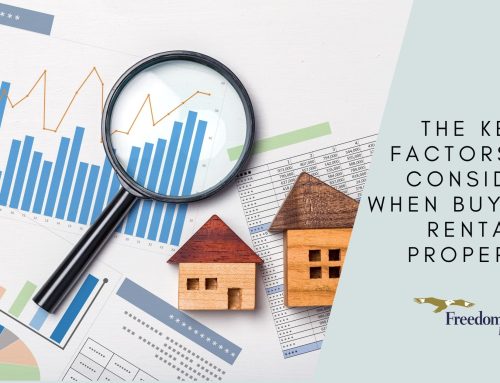As a professional mortgage broker, I understand the intricacies of securing loans for investment properties. This type of financing is a critical component in the world of real estate investing, and navigating it successfully can significantly impact your investment’s profitability. In this comprehensive guide, we will explore key strategies to secure the best financing for your investment property, understand market trends, and make financially sound investment decisions.
Understanding Investment Property Loans
Investment property loans are mortgages used to buy or refinance residential properties that are not the borrower’s primary residence. These loans are typically subject to higher interest rates and down payment requirements than primary residence mortgages due to the perceived higher risk by lenders.
- Assess Your Financial Health
Before exploring loan options, it’s crucial to evaluate your financial situation. Lenders will scrutinize your credit score, debt-to-income ratio, and investment portfolio. A strong credit score (above 720) can help you secure better interest rates. Ensure your financial health is in good standing to increase your loan approval chances and access favorable terms. - Explore Loan Options
Investment property loans come in various forms, including conventional loans, government-backed loans (like FHA), portfolio loans, and more. Each has its qualifications, benefits, and drawbacks.- Conventional Loans: These are a popular choice but typically require a higher down payment (usually 20-30%) and have stringent credit requirements.
- Government-Backed Loans: FHA loans can be used for investment properties under certain conditions, like a multi-unit property where you occupy one unit.
- Portfolio Loans: Offered by private lenders, these are more flexible but might come with higher interest rates.
- Understand the Market: Market knowledge is power in real estate investing. Understanding local property values, rental market trends, and future development plans can inform your investment strategy. This knowledge not only aids in selecting the right property but also in securing a loan, as lenders are more confident in financing properties in thriving markets.
- Calculate Your Returns
Before securing a loan, calculate the potential returns on your investment. Consider the rental income, property appreciation, and tax benefits against your mortgage payments, maintenance costs, and property taxes. Tools like the Capitalization Rate and Cash-on-Cash Return can help in these calculations. - Save for a Substantial Down Payment
A larger down payment can significantly improve your loan terms. It reduces the lender’s risk and can help you secure a lower interest rate. Aim for at least 20-30% of the property’s purchase price. - Work with a Mortgage Broker
A mortgage broker can offer access to a wider range of loan products than a single lender. They can help you navigate the complexities of investment property loans and find the best rates and terms based on your financial situation and investment goals. - Prepare for Additional Scrutiny
Be prepared for a more rigorous underwriting process. Lenders often require additional documentation for investment properties, including proof of rental income, property management experience, and a higher reserve of cash to cover mortgage payments. - Factor in Additional Costs
Beyond the mortgage, consider other costs like property management, maintenance, insurance, and potential vacancy periods. These expenses should be factored into your overall investment strategy. - Stay Informed and Flexible
The real estate market is dynamic, and staying informed about market trends, interest rate changes, and new loan products can give you a competitive edge. Be flexible and ready to adapt your strategy to market changes.
Securing the best financing for your investment property requires a blend of financial preparedness, market knowledge, and strategic planning. By understanding your loan options, assessing the market, calculating potential returns, and preparing for the lender’s scrutiny, you can position yourself for a successful investment. Working with a Mortgage Broker saves you time in researching the best options for your situation. Each investment property is unique, and what works for one may not work for another. Tailor your approach to each property and stay informed to navigate the ever-changing landscape of real estate investment.






